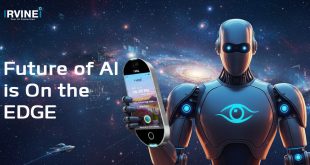Artificial Intelligence (AI) is no longer a futuristic concept; it’s a dynamic force reshaping industries across the globe. From software development to healthcare, AI is enhancing efficiency, improving decision-making, and driving innovation. This article explores the multifaceted role of AI in technology, the benefits it offers businesses, the challenges of implementation, and future trends that could redefine our world.
What is AI
At its core, AI is a branch of computer science dedicated to creating intelligent agents capable of performing tasks that typically require human intelligence. These tasks range from problem-solving and decision-making to speech recognition and data analysis. Key components of AI include:
Machine Learning:
This subfield enables computers to learn from data, improving their performance over time without explicit programming.
Deep Learning:
Utilizing neural networks, deep learning mimics human brain functions to solve complex problems, particularly in image and video processing.
Natural Language Processing (NLP):
This area focuses on the interaction between humans and computers through language, allowing machines to understand and generate human language.
Robotics:
AI enhances robotics, enabling machines to learn from experience and perform complex tasks autonomously.
Applications of AI in Various Sectors
The applications of AI are vast and varied, impacting numerous sectors:
Software Development
AI tools are revolutionizing software development, automating tasks such as bug fixing, testing, and code optimization. Developers now leverage AI to streamline workflows, allowing them to focus on more complex challenges.
Data Analytics
AI significantly enhances data analytics by enabling rapid processing of vast datasets. Tools powered by machine learning can identify patterns, generate visualizations, and establish predictive models with minimal human intervention.
Cybersecurity
In cybersecurity, AI plays a crucial role in threat detection and response. AI systems analyze data patterns to identify potential security breaches, automating responses to mitigate risks. This proactive approach enhances overall security protocols.
Cloud Computing
AI integration in cloud computing enhances resource allocation, cost management, and security. AI algorithms optimize operations hosted in the cloud, ensuring efficient performance and reduced costs for businesses.
Finance
In the financial sector, AI is transforming processes by automating tasks, improving fraud detection, and enhancing customer service. By analyzing large volumes of transactions, AI systems can detect fraudulent activities in real-time, providing immediate alerts and solutions.
Healthcare
AI’s impact on healthcare is profound. From diagnosing diseases to drug discovery, AI technologies improve patient outcomes. Algorithms can analyze medical images for early signs of conditions like cancer, while AI also facilitates personalized treatment plans.
Challenges in Implementing AI
Despite its potential, the journey to AI adoption is fraught with challenges:
Technical Hurdles
Integrating AI into existing systems requires significant technical expertise and resources. Many companies struggle with data management, model training, and ensuring the reliability of AI systems.
Ethical Concerns
The rise of AI brings ethical dilemmas, particularly regarding data privacy and bias. Ensuring that AI systems are fair and transparent is crucial to maintaining trust among users and complying with regulations.
Cost Considerations
While AI can lead to long-term cost savings, the initial investment can be substantial. Businesses must weigh the costs of implementing AI solutions against the potential return on investment.
The Need for AI Skills and Literacy
As Artificial Intelligence continues to evolve, the demand for skilled professionals is skyrocketing. Companies that prioritize AI literacy in their workforce will be better equipped to leverage these technologies effectively. However, many organizations face an AI skills gap, limiting their ability to innovate and compete.
Investing in training programs and courses focused on AI and data science is essential. By upskilling employees, businesses can foster a culture of innovation, ensuring they remain competitive in the digital landscape.
Future Trends in AI Technology
Looking ahead, several trends are poised to shape the future of AI:
AI and IoT Integration
The synergy between AI and the Internet of Things (IoT) is expected to create smarter environments. Artificial Intelligence will enhance IoT systems by processing sensory data, enabling devices to make autonomous decisions. For Example , IRVINEi AI and OVAL IoT Hub is a cutting-edge platform that integrates AI and IoT technology, enabling smart home and business automation. It processes real-time data from connected devices, allowing for seamless control and intelligent decision-making.
Edge Computing
Edge computing allows Artificial Intelligence algorithms to be deployed directly on devices rather than relying on remote servers. This trend will improve response times and reduce latency, making AI applications more efficient.
Emerging AI Technologies
AI will continue to be a catalyst for other transformative technologies, including quantum computing and robotics. The convergence of these technologies will unlock new possibilities and applications.
Conclusion
AI is undeniably revolutionizing industries, offering unparalleled opportunities for growth and innovation. As businesses increasingly adopt AI solutions, those equipped with Artificial Intelligence literacy will gain a competitive edge. By investing in skills development and staying abreast of technological advancements, organizations can navigate the evolving landscape confidently. As we move forward, the transformative power of AI will shape not just industries but the future of society as a whole.
